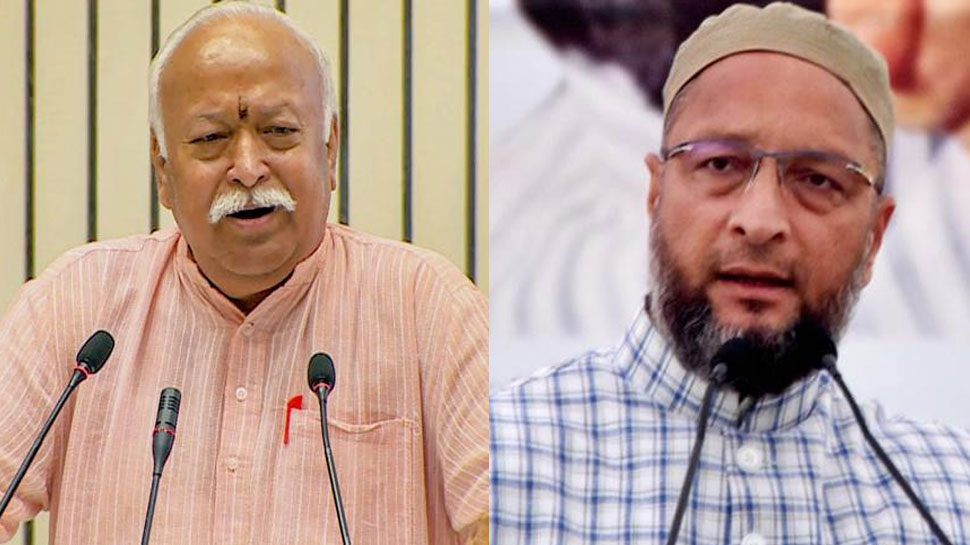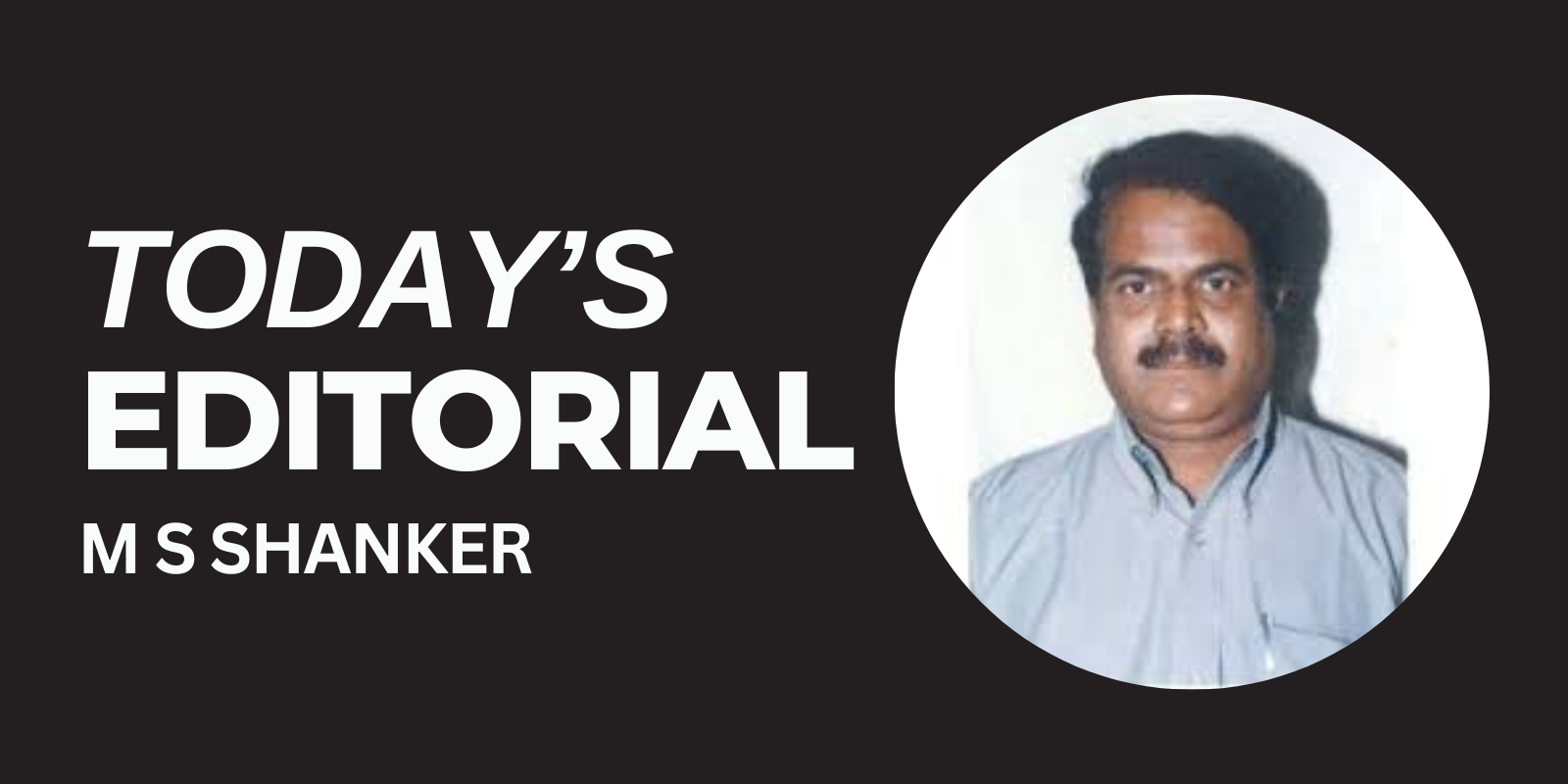A statement by Rashtriya Swayamsevak Sangh (RSS) Chief Mohan Bhagwat on Monday urging unity among the majority Hindu population has created ripples across the political landscape. His call for solidarity has rattled parties like the All India Majlis-e-Ittehadul Muslimeen (AIMIM), led by Asaduddin Owaisi, and the Congress, along with its allies. But why is there such resistance to the idea of Hindu unity? And what does this reveal about the political strategies of these opposition parties? Bhagwat’s call for unity among the 80% of Indians who identify as Hindu is being painted by his critics as a communal move. Yet, the question arises: why is it considered unacceptable for the majority to unite for the preservation of their culture and traditions, especially when religious minorities have long organized themselves to protect their rights and political interests? The crux of the debate seems to be a deep-seated discomfort among opposition parties with the notion of a united Hindu electorate, which could potentially undermine their political fortunes. Asaduddin Owaisi, known for his vocal stance on secularism and constitutional values, was quick to criticize Bhagwat’s statement. But one must ask, where in the Indian Constitution does it state that calling for unity among Hindus is against its principles? The very essence of a democracy is the right to freedom of expression, allowing any community to advocate for its own unity and survival.
Owaisi’s own political outfit, AIMIM, openly identifies itself with a particular religion. This raises questions about his selective outrage. If he truly believes in secular principles, why does his party’s name reflect a specific religious identity? Wouldn’t it be more appropriate for AIMIM to rename itself as the “All India Secular Front” if it is indeed committed to secularism? This hypocrisy is not unique to Owaisi; it reflects a broader trend among several opposition leaders who invoke secularism while simultaneously engaging in religious politics. It is no secret that the opposition’s reaction to Bhagwat’s call stems from a deep-rooted fear of losing political relevance. The unspoken truth is that as long as Prime Minister Narendra Modi remains at the helm, the opposition struggles to pose a credible threat to his leadership. Despite their persistent attempts to divide the electorate along caste and community lines, such efforts have repeatedly failed, as evidenced by the 2024 Lok Sabha elections where the BJP secured a third consecutive term in power.
)
The RSS, often seen as the ideological backbone of the BJP, has now recognized the need to counter the growing anti-Hindu narratives being propagated by the opposition. It understands that the fragmentation of Hindu votes could lead to a surge in minority dominance, as witnessed in states like West Bengal and Assam, where the demographic balance is reportedly shifting due to the influx of migrants from Bangladesh and Rohingyas. The increasing cases of communal violence and crimes against wome, especially in West Bengal, have only reinforced the concerns of many Hindus about their safety and future. What truly irks leaders like Owaisi is not the idea of Hindu unity itself, but the fact that it strengthens the political position of Narendra Modi and the BJP. Owaisi himself admitted that his opposition is not against any community but solely against Modi’s continuance as Prime Minister as he poses threat to his opponents. This admission underscores the reality that for these leaders, the battle is not about principles or ideology, but about power. Modi’s ability to connect with the masses, deliver on development promises, and maintain national security has made him a formidable force that the opposition finds difficult to counter.
Under Modi’s leadership, India has not witnessed any major terror attacks or communal violence, barring a few isolated incidents like those in Manipur, which are driven more by ethnic conflicts than by religious discord. His government has emphasized inclusive growth with slogans like “Sabka Saath, Sabka Vikas, Sabka Vishwas,” reinforcing a commitment to the progress of all communities, irrespective of their religion. This inclusive approach stands in stark contrast to the divisive tactics often employed by opposition parties. The opposition’s condemnation of Bhagwat’s unity call reveals a fundamental double standard. While they accuse the RSS and BJP of communalism, they themselves indulge in vote-bank politics by pandering to minority communities. The blatant hypocrisy is evident when leaders like Owaisi raise slogans like “Palestine Zindabad” in the Lok Sabha, a place meant for addressing India’s issues, not international conflicts. Such acts not only expose their communal mindset but also their disregard for national unity. Instead of criticizing the RSS and BJP for promoting Hindu unity, it would be more constructive for the opposition to focus on creating a vision that appeals to all Indians. They must move beyond their politics of appeasement and offer concrete solutions that resonate with the aspirations of the electorate. The opposition’s fixation on dividing Hindu voters into castes and sub-castes only alienates them further from the broader electorate, which is increasingly gravitating towards a more united and cohesive national identity. The resistance to Mohan Bhagwat’s call for Hindu unity is a symptom of a deeper malaise within the opposition. As long as they continue to play divisive politics, they will find it difficult to challenge the BJP’s dominance. The need of the hour for the opposition is to abandon its hypocritical stance and come up with a narrative that speaks to all Indians, transcending caste, religion, and regional divides. Only then can they hope to offer a real alternative to the Modi-led government that continues to resonate with the aspirations of the nation.






